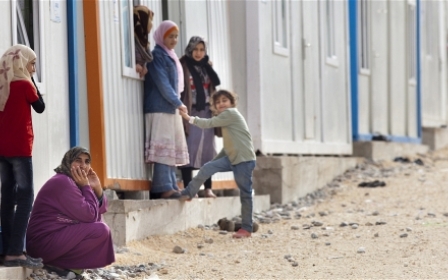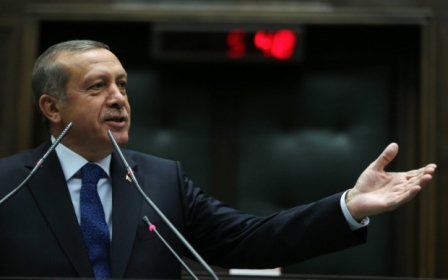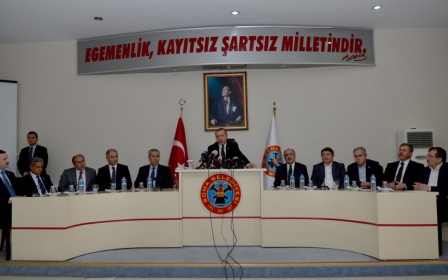Investigation over Turkish flag removal in Kurdish stronghold

Turkish leaders strongly condemned on Monday the removal of a Turkish flag from a military base by a Kurdish protester, during a weekend of clashes that left two dead.
Protesters in the Kurdish-dominated southeast, angry over what they see as an overbearing and ever-growing military presence, clashed with Turkish soldiers on Saturday, leading to the deaths of two Kurdish demonstrators.
The killings sparked further clashes on Sunday, during which a masked protester climbed a pole at an air base in the southeastern city of Diyarbakir and took down a Turkish flag.
"We don't care if he is a child," said Prime Minister Recep Tayyip Erdogan, referring to the protester. "Even if a child dares to take down our sacred flag both him and those who send him there will pay a price."
Turkish President Abdullah Gul said the removal and "similar heinous attacks and provocations will never reach their aims.
The jailed leader of the banned Kurdistan Workers' Party (PKK), Abdullah Ocalan, said his party does not "behave hurtfully toward symbols of any country." His statement was relayed by pro-Kurdish lawmakers who visited him in his prison cell off Istanbul on Monday.
The event dominated the airwaves in Turkey, drawing condemnation from all sides.
"We can never accept such an action," Kemal Kilicdaroglu, the leader of the country's main opposition Republican People's Party (CHP), said earlier on Monday.
In an online statement, the army strongly condemned "the attack against the Turkish flag, the symbol of the glorious Turkish nation".
Tensions have been steadily rising in the southeast in recent weeks over the construction of new army posts in Kurdish-majority areas, seen as a threat to a peace process launched in 2012 between Turkey and the PKK.
The Kurdish rebels declared a ceasefire in March last year following secret talks with the country's spy agency. But the process came to a halt after the PKK announced in September they were suspending their retreat from Turkish soil, accusing the government of failing to deliver on promised reforms.
The PKK, which is blacklisted as a terrorist organisation by Turkey and much of the international community, launched an insurgency seeking self-rule in the southeast in 1984. The conflict that followed has claimed about 45,000 lives.
The PKK has since limited its demands to greater autonomy for Turkey's Kurdish population, which numbers between 14 and 20 million according to different estimates.
New MEE newsletter: Jerusalem Dispatch
Sign up to get the latest insights and analysis on Israel-Palestine, alongside Turkey Unpacked and other MEE newsletters
Middle East Eye delivers independent and unrivalled coverage and analysis of the Middle East, North Africa and beyond. To learn more about republishing this content and the associated fees, please fill out this form. More about MEE can be found here.





